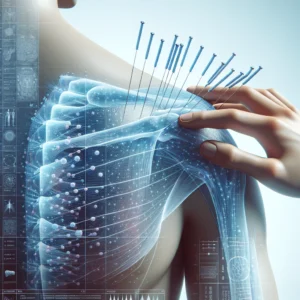Powerful Acupuncture Techniques to Relieve Shoulder Stiffness Effectively
Understanding Shoulder Stiffness: Causes, Symptoms, and Its Impact on Daily Life
Shoulder stiffness is more than just a minor annoyance; it is a debilitating condition that can greatly interfere with your daily activities and diminish your overall quality of life. This common ailment can arise from various factors, including poor posture, repetitive motions, muscle imbalances, and previous injuries. Initially, the discomfort may present as a subtle tightness, but if not addressed promptly, it can escalate into severe pain and limited movement.
Extended periods of poor posture, particularly in desk jobs or frequent overhead tasks, can put undue strain on the shoulder muscles and ligaments, eventually leading to chronic stiffness. Furthermore, athletes and individuals involved in manual labor often face an increased risk of overuse injuries that can provoke inflammation and tightness in the shoulder area. Traumatic events, such as falls or accidents, can also lead to acute shoulder stiffness, frequently accompanied by swelling and bruising.
The symptoms associated with shoulder stiffness can manifest in various ways, such as radiating pain down the arm, difficulty in lifting the arm, or a persistent sensation of tightness in the shoulder joint. You may also observe a notable decrease in your range of motion, making everyday activities like reaching, throwing, or even sleeping uncomfortable. Recognizing these symptoms early is vital for seeking effective treatments, such as acupuncture for shoulder stiffness, which can offer considerable relief and help restore mobility.
 Exploring How Acupuncture Works to Alleviate Shoulder Pain Effectively
Exploring How Acupuncture Works to Alleviate Shoulder Pain Effectively
To fully appreciate the benefits of acupuncture for shoulder stiffness, it’s essential to understand the mechanisms behind this ancient practice. Grounded in the principles of Traditional Chinese Medicine (TCM), acupuncture focuses on balancing vital energy, known as “Qi,” which flows through specific pathways in the body referred to as meridians. When blockages or imbalances disrupt this energy flow, they can lead to pain and stiffness.
During an acupuncture session, fine needles are skillfully inserted at precise points along these meridians. This technique activates the nervous system, prompting the release of endorphins and other neurotransmitters that alleviate pain and reduce inflammation. As the body initiates its natural healing process, blood circulation improves, delivering crucial nutrients and oxygen to the affected shoulder areas.
<pNumerous studies have shown that acupuncture can significantly lower pain levels and enhance the range of motion for individuals suffering from shoulder stiffness. By directly addressing the root causes of discomfort, acupuncture not only provides immediate relief but also fosters long-term recovery. This holistic approach targets both symptoms and underlying issues, making it an invaluable therapeutic option for those facing challenges related to shoulder stiffness.
Key Acupuncture Points to Target for Effective Relief from Shoulder Stiffness
Familiarizing yourself with specific acupuncture points can greatly enhance your treatment experience and outcomes when exploring options for shoulder stiffness relief. Here are some of the most effective acupuncture points commonly targeted for alleviating shoulder stiffness:
1. LI 15 (Jianyu): This point is located within the shoulder joint and is crucial for reducing pain and stiffness, effectively releasing tension and improving mobility.
2. SI 9 (Jianzhen): Situated just above the shoulder, this point is particularly effective for addressing pain and tightness in the shoulder, especially those resulting from overexertion or strain.
3. GB 21 (Jianjing): Located at the highest point of the shoulder, this point is frequently used to relieve muscle tension and promote relaxation, aiding in recovery.
4. TH 5 (Waiguan): Found on the forearm, this point is well-known for alleviating shoulder pain and improving overall shoulder function.
Stimulating these key acupuncture points enables practitioners to effectively target areas of tension and discomfort, providing substantial relief from shoulder stiffness. An experienced acupuncturist will conduct a thorough evaluation of your condition and customize the treatment to specifically address your symptoms, ensuring optimal outcomes.
Customized Treatment Plans from Acupuncturists for Comprehensive Healing
One of the most compelling advantages of acupuncture is the personalized treatment plans developed by skilled practitioners. Recognizing that each individual's experience with shoulder stiffness is unique, acupuncturists adopt a holistic approach to treatment. During your initial consultation, the acupuncturist will perform a detailed assessment, which may include a physical examination and an in-depth discussion about your medical history, lifestyle, and symptoms.
Based on this comprehensive evaluation, the acupuncturist will design a tailored treatment plan that targets your symptoms while addressing any underlying causes. This individualized strategy may incorporate various acupuncture techniques, such as dry needling or electro-acupuncture, along with recommendations for complementary therapies like cupping or herbal medicine.
This personalized approach not only aims to alleviate your current symptoms but also promotes long-term shoulder health and helps prevent future stiffness. Regular follow-up sessions allow the acupuncturist to adjust the treatment plan as necessary, ensuring you receive the most effective care possible. This level of individual attention and customization sets acupuncture apart as a leading choice for those seeking relief from shoulder stiffness.
 Unveiling the Benefits of Acupuncture for Shoulder Stiffness Relief
Unveiling the Benefits of Acupuncture for Shoulder Stiffness Relief
Experience Significant Pain Relief and Enhanced Mobility with Acupuncture
One of the most notable benefits of acupuncture for shoulder stiffness is its exceptional ability to reduce pain and improve mobility. Many patients report experiencing significant pain relief after just a few sessions. This effectiveness is attributed to acupuncture’s unique capacity to activate the body’s natural pain relief mechanisms. By stimulating the release of endorphins and enhancing blood circulation to the affected areas, acupuncture alleviates discomfort and encourages healing.
Moreover, the improvement in mobility is another critical advantage. Stiffness in the shoulder often limits the range of motion, complicating daily tasks. Acupuncture helps relax tight muscles and restore normal function. As tension subsides, many patients find they can lift their arms, reach across their bodies, and engage in physical activities more efficiently.
Additionally, acupuncture’s holistic nature addresses not just the physical symptoms but also the emotional strain that often accompanies chronic pain. This comprehensive approach can enhance overall well-being, making acupuncture an invaluable resource for those dealing with shoulder stiffness.
Achieve Long-Term Relief and Preventative Care through Acupuncture
Beyond providing immediate pain relief, acupuncture offers long-term benefits that can aid in preventing the recurrence of shoulder stiffness. Regular acupuncture treatments can foster ongoing healing and maintain optimal shoulder functionality. By addressing musculoskeletal imbalances and promoting better posture, acupuncture enhances body efficiency, thereby reducing the risk of future stiffness and pain.
Furthermore, acupuncture supports the body's natural healing processes. As patients continue their treatment, they frequently notice an overall improvement in their physical condition, including increased strength and flexibility in the shoulder region. This proactive approach empowers individuals to take control of their health, minimizing dependence on medications and invasive procedures.
Preventive care is particularly essential for those with a history of shoulder issues or those engaged in activities predisposing them to injury. By incorporating acupuncture into a regular health regimen, patients can effectively manage their shoulder health and support long-term wellness.
Combining Acupuncture with Complementary Therapies for Optimal Healing
While acupuncture stands out as a powerful standalone treatment, it works exceptionally well in conjunction with other therapies to enhance the management of shoulder stiffness. By integrating acupuncture with physical therapy, chiropractic care, or massage therapy, patients can achieve greater overall effectiveness and accelerate their recovery. Each of these modalities addresses different aspects of shoulder health, culminating in a comprehensive treatment plan that targets pain relief, mobility, and strength.
For instance, while physical therapy focuses on rehabilitation exercises to strengthen shoulder muscles and improve range of motion, combining it with acupuncture, which alleviates pain and inflammation, often leads to faster recovery times and superior outcomes. Similarly, chiropractic care can aid in aligning the spine and shoulder joints, while acupuncture addresses soft tissue concerns, creating a holistic treatment strategy.
Moreover, lifestyle modifications such as ergonomic adjustments at work, targeted stretching, and strengthening exercises can further amplify the benefits of acupuncture. By adopting a multifaceted approach to shoulder health, patients can maximize the advantages of each treatment modality, resulting in a more resilient and effective recovery journey.
Real Patient Testimonials Showcasing the Success of Acupuncture
The transformative power of acupuncture for shoulder stiffness is best illustrated through inspiring patient testimonials. Numerous individuals have shared their success stories, highlighting how acupuncture has significantly enhanced their quality of life.
For example, Sarah, a graphic designer, suffered from persistent shoulder stiffness due to long hours spent seated at her desk. After undergoing several acupuncture sessions, she experienced a remarkable decrease in pain and an improved ability to work comfortably. She expressed, “I never thought I could lift my arms without discomfort again. Acupuncture truly changed my life.”
Another compelling testimonial comes from Tom, an avid golfer who was sidelined due to shoulder pain. After incorporating acupuncture into his rehabilitation routine, he regained his range of motion and noticed improvements in his swing. “Thanks to acupuncture, I’m back on the course and playing better than ever. It’s been a game-changer.”
These testimonials underscore the profound impact of acupuncture on individuals suffering from shoulder stiffness. By sharing their experiences, patients not only encourage others to seek treatment but also highlight the efficacy of acupuncture as a legitimate and valuable option for addressing shoulder-related challenges.
 Preparing for Your Acupuncture Session: An In-Depth Guide
Preparing for Your Acupuncture Session: An In-Depth Guide
Your First Acupuncture Visit: What to Expect
Preparing for your initial acupuncture session can help alleviate any anxieties and ensure a smooth experience. During your first visit, the acupuncturist will conduct a thorough evaluation, including a discussion about your medical history and current symptoms relating to shoulder stiffness. This initial conversation is crucial for tailoring the treatment to meet your specific needs.
After the assessment, you will be guided to a treatment room where you can lie comfortably. The acupuncturist will select specific acupuncture points based on your condition and gently insert fine needles into the skin at the designated locations. Many patients report minimal discomfort during this process, often describing it as a slight prick or tingling sensation.
The session typically lasts between 30 to 60 minutes, during which you are encouraged to relax and breathe deeply. It’s common to experience a sense of calmness and relaxation as the treatment progresses. After the session, the acupuncturist may provide additional recommendations such as stretching exercises or lifestyle adjustments to maximize the benefits of your treatment.
Maximizing the Benefits of Acupuncture: Key Tips for Success
To fully reap the rewards of your acupuncture for shoulder stiffness treatment, consider implementing these helpful tips. First, arrive at your appointment well-hydrated and avoid heavy meals right before your session. Staying hydrated can enhance your body’s response to treatment, while an empty stomach may heighten your sensitivity to the needles.
Post-session care is equally important. After your acupuncture treatment, it’s advisable to take some time to relax and refrain from engaging in strenuous activities, allowing your body to absorb the benefits of the session. Gentle stretching and light movement can help maintain the improved range of motion achieved during treatment.
Moreover, maintain open communication with your acupuncturist. Discuss any changes you notice, whether they are positive or negative, so that they can adjust the treatment plan as needed. Consistency is key; regular sessions can significantly enhance the effectiveness of acupuncture in managing shoulder stiffness, so establish a schedule that aligns with your needs.
Ensuring Safety and Understanding Potential Side Effects of Acupuncture
Safety is paramount when it comes to acupuncture for shoulder stiffness. This practice is generally regarded as safe when performed by a qualified practitioner. However, it’s essential to be aware of potential side effects, which may include mild bruising, soreness at the needle sites, or temporary fatigue. Typically, these side effects are minor and resolve quickly.
Before your session, it is crucial to inform your acupuncturist about any medical conditions, allergies, or medications you are taking. This information enables them to customize the treatment safely and effectively.
While rare, more serious side effects, such as infection or punctured organs, could occur; however, these incidents are exceptionally uncommon when acupuncture is conducted by trained professionals. By choosing a licensed acupuncturist and adhering to their recommendations, you can feel confident in the safety and efficacy of your treatment.
Finding the Ideal Acupuncturist for Your Shoulder Stiffness
Choosing the right acupuncturist is crucial for effectively addressing shoulder stiffness. Begin by searching for a licensed practitioner with a strong background in treating musculoskeletal conditions, particularly those related to shoulder issues. Verify their credentials, including education and certification, to ensure they possess the necessary training.
Reading reviews and testimonials from previous patients can also provide valuable insights into the acupuncturist’s approach and effectiveness. Consider scheduling a consultation to discuss your specific concerns and treatment objectives. This initial meeting will allow you to assess their communication style and ensure you feel comfortable with their methods.
Trust your instincts when selecting an acupuncturist. A competent practitioner will actively listen, address your questions, and develop a personalized treatment plan tailored to your needs. Selecting the right professional lays the foundation for a successful journey toward relief from shoulder stiffness.
 Targeting Specific Shoulder Conditions with Acupuncture: A Focused Approach
Targeting Specific Shoulder Conditions with Acupuncture: A Focused Approach
Effectively Managing Rotator Cuff Injuries Through Acupuncture Treatment
Rotator cuff injuries are a common source of shoulder stiffness, often arising from repetitive strain or acute trauma. These injuries can lead to debilitating pain and reduced mobility, negatively impacting daily activities and overall quality of life. Acupuncture offers a promising option for effectively managing rotator cuff injuries, providing relief from pain while supporting the healing process.
By targeting specific acupuncture points associated with the shoulder and surrounding muscles, practitioners can help reduce inflammation and enhance blood flow to the injured tissues. This approach not only promotes healing but also restores function. Research has shown that patients with rotator cuff injuries often experience significant reductions in pain and notable improvements in range of motion following acupuncture treatments.
Moreover, acupuncture can alleviate the muscle tension commonly associated with rotator cuff injuries. By relaxing the nearby musculature, patients can enjoy a more comprehensive sense of relief, making rehabilitation exercises more effective. This holistic approach targets the injury while contributing to overall shoulder health, establishing acupuncture as a valuable component of recovery for individuals with rotator cuff injuries.
Utilizing Acupuncture for Effective Treatment of Frozen Shoulder
Frozen shoulder, medically referred to as adhesive capsulitis, is characterized by severe stiffness and pain in the shoulder joint, often leading to restricted movement. Acupuncture has gained recognition as an effective treatment modality for managing this challenging condition. By focusing on specific acupuncture points, practitioners can alleviate pain, reduce inflammation, and gradually restore mobility.
Research indicates that acupuncture can significantly improve shoulder function in individuals suffering from frozen shoulder. This therapy stimulates the body’s natural healing mechanisms, enhances blood circulation, and facilitates the release of tight muscles. This multifaceted approach not only alleviates pain but also aids in gradually regaining motion within the shoulder joint.
Patients with frozen shoulder often report considerable improvements in symptoms after undergoing a series of acupuncture sessions. The treatment helps disrupt the cycle of stiffness and pain, enabling individuals to engage more fully in their daily lives. Acupuncture's ability to address both the physical and emotional components of frozen shoulder positions it as a holistic and effective treatment option.
Addressing Arthritis-Related Shoulder Stiffness with Acupuncture Treatments
Arthritis is a leading cause of shoulder stiffness, frequently resulting in chronic pain and decreased mobility. Acupuncture can play a pivotal role in managing arthritis-related symptoms, offering a natural and effective alternative to conventional pain relief methods. By addressing the underlying causes of inflammation and discomfort, acupuncture enhances joint function and improves the overall quality of life for those affected by arthritis.
Targeted acupuncture treatments can alleviate pain by enhancing blood flow and reducing inflammation within the shoulder joint. This approach not only provides immediate relief but also contributes to long-term joint health. Regular acupuncture sessions can help manage the persistent pain associated with arthritis, enabling patients to participate more fully in their daily activities without being hindered by stiffness.
Furthermore, acupuncture can complement other treatments for arthritis, such as physical therapy and medication. By integrating acupuncture into a comprehensive treatment plan, patients can achieve enhanced outcomes and improve their overall well-being. This integrative approach to managing arthritis-related shoulder stiffness underscores the effectiveness of acupuncture as a valuable tool in pain management.
 Enhancing Post-Surgical Shoulder Rehabilitation Through Acupuncture
Enhancing Post-Surgical Shoulder Rehabilitation Through Acupuncture
Acupuncture can be an essential component of rehabilitation for individuals recovering from shoulder surgery. Post-surgical shoulder stiffness is a common concern, often resulting from immobilization and trauma associated with surgical interventions. Acupuncture can expedite recovery, alleviate pain, and improve mobility following surgery.
By targeting specific acupuncture points, practitioners can promote healing and reduce inflammation at the surgical site. This enhances blood circulation to the tissues, facilitates repair, and minimizes scar tissue formation. Many patients report a significant decrease in pain and discomfort following acupuncture treatments, allowing them to participate more effectively in physical therapy and rehabilitation exercises.
Additionally, acupuncture can help address the emotional challenges of recovery, such as anxiety and frustration, which often accompany the healing journey. By promoting relaxation and fostering a sense of well-being, acupuncture supports a more positive experience during recovery. Integrating acupuncture into post-surgical rehabilitation can be transformative for individuals seeking to regain strength and mobility in their shoulders.
Frequently Asked Questions About Acupuncture for Shoulder Stiffness
How Many Acupuncture Sessions Are Needed for Effective Relief?
The number of acupuncture sessions required to effectively relieve shoulder stiffness can vary widely among individuals. Many patients experience improvements after just a few sessions, while others may require ongoing treatment to achieve optimal results.
Can Acupuncture Effectively Address Chronic Shoulder Pain?
Yes, acupuncture can be quite effective in managing chronic shoulder pain. By targeting the underlying causes of discomfort and promoting healing, acupuncture often provides significant relief for individuals dealing with long-term issues.
Is Acupuncture Covered by Insurance for Shoulder Stiffness Treatments?
Many insurance plans offer coverage for acupuncture treatments, particularly when prescribed for specific conditions like shoulder stiffness. It is recommended to consult your insurance provider to learn more about coverage options and reimbursement procedures.
What Alternatives Exist to Acupuncture for Shoulder Stiffness?
Alternatives to acupuncture for managing shoulder stiffness include physical therapy, chiropractic care, massage therapy, and medications. Each option presents unique benefits; however, acupuncture is distinguished by its holistic approach to healing.
What Should I Wear for an Acupuncture Session?
It’s best to wear loose-fitting, comfortable clothing that allows easy access to the shoulder area. This ensures that the acupuncturist can effectively place needles without causing discomfort.
Are There Any Potential Side Effects of Acupuncture?
While acupuncture is generally regarded as safe, some individuals may experience minor side effects, such as soreness, bruising, or fatigue. These effects are typically temporary and resolve quickly.
Can I Resume Regular Activities After an Acupuncture Session?
Most patients can return to their daily activities after an acupuncture session. However, it is advisable to refrain from strenuous exercise immediately following treatment to allow your body to recover.
How Long Does a Typical Acupuncture Session Last?
An acupuncture session generally lasts between 30 to 60 minutes, although the exact duration may vary depending on individual needs and the complexity of the condition being treated.
Is Acupuncture Suitable for Everyone?
While acupuncture is safe for many individuals, those with specific medical conditions, such as bleeding disorders or infections, should consult their healthcare provider before beginning treatment.
Can Acupuncture Help with Shoulder Stiffness Related to Stress?
Absolutely! Acupuncture can effectively address stress-related shoulder stiffness by promoting relaxation and reducing muscle tension, making it a valuable resource for managing stress-induced symptoms.
Presented By: Shoulder Stiffness Acupuncture
The Article: Acupuncture for Shoulder Stiffness: Your Path to Relief appeared first on https://mcrtherapies.co.uk














It’s interesting to consider the multifaceted nature of shoulder stiffness and how it can impact so many areas of life. I’ve experienced something similar myself, especially after long hours of working at a desk, which really highlighted the importance of posture and regular movement. I started incorporating short breaks into my routine where I would stretch and do some light shoulder exercises, and it made a noticeable difference in my flexibility and comfort.
It’s great to hear about your experience with shoulder stiffness and the positive changes you’ve made to your routine. Your point about posture is key—our daily habits, especially in desk work, can have a profound impact on our physical health. It’s often easy to overlook the strain that prolonged sitting can cause.
“I’m glad to hear that you’ve found relief through stretching and movement! If you’re interested in exploring more tips and exercises for shoulder health, check out this resource for additional guidance.”
https://mcrtherapies.com/ParentAler
Ah, shoulder stiffness—nature’s way of reminding us that we’re not invincible, especially after a weekend of “extreme” couch surfing. I can totally relate to that creeping tightness from sitting at my desk like a pretzel for hours on end. And let’s be real: who needs a personal trainer when your own shoulders could serve as a reminder of your questionable posture?
Your exploration of shoulder stiffness strikes a chord, especially considering how prevalent this issue has become in our modern lifestyle. The link you draw between prolonged poor posture and shoulder discomfort is particularly relevant; I personally have experienced this firsthand. Working from home has altered my posture, often leading to that uncomfortable tension in my shoulders that sometimes feels insurmountable.